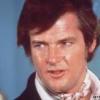Interesting how this thread vanished before the publication of DMC, and now surfaces after CB and in the wake of the William Boyd announcement.
All the lambasting of Messrs Faulks and Deaver took place elsewhere, obviously, but are all those who predicted that DMC would be a masterpiece now reserving their judgement until they've actually read WB's work?
Re: the existing continuation novels:
Upon reading the announcement of John Gardner being chosen to pen new novels, I sought out his Liquidator series (I'd seen the one and only movie some time earlier, so I knew what I was in for) and enjoyed them immensely. I felt that Glidrose had made the right choice - after reading Licence Renewed I felt my confidence had been vindicated.
I thought For Special Services had a little too much of everything, and I'm surprised how many people on these boards rate it highest. Still, to each their own.
Initially, I thought Icebreaker was too twisty-turny, but it has become one of my favorites. More reminiscent of Alistair Maclean than Fleming, but in a good way.
After that I came to realize that it would be unfair to expect Mr. Gardner to write like Fleming. We were in a different decade, where the emphasis in spy writing had shifted from eloquent prose to technical descriptions. I think Mr. Gardner deserves credit for remembering to include the taste of fine food and the feel of driving fast cars, while the likes of Clancy and Ludlum gave us nowt but sophisticated plots that took weeks to sift through. If Mr. Gardner included his own brand of double- and triple- and quadruple crosses, well why not? Times had changed - had Fleming lived and kept writing, he too might have found it necessary to (gasp) change with the times, or be left behind.
Nobody Lives For Ever, Scorpius, Brokenclaw and especially Win, Lose or Die worked for me on every level. True, they didn't read like Fleming, but I had already come to realize that I had no right to expect them to.
It was only from TMFB on that I sensed that Mr. Gardner was losing his enthusiasm for the job. It seemed like he was trying to write spy stories that involved James Bond, rather than writing James Bond thrillers. When Raymond Benson was chosen to replace him I thought, why not? Sure he'd never written a novel before, but then, before Casino Royale, neither had Fleming.
I thought Mr. Benson did a bang-up job with Zero Minus Ten. He set out to write the best 007 continuation he could, and I for one feel he succeeded. He too remembered to descibe the texture of food and drink, and the feel of torture and physical exertion while building up the requisite barely-believable plot and narrative. Like FSS, however, I found The Facts of Death contained too much of everything, while High Time to Kill - like IB - was a successful foray outside the usual formula. It was only after HHTK that I started to feel like I was reading high-quality fanfics - too much reliance on old characters and cliches (coughDoubleshotcough).
I adopted a 'wait and see' attitude with Devil May Care, which was just as well; if I'd anticipated it with as much optimism as others in this thread had, I would have been even more disappointed than I was. Putting 'writing as Ian Fleming' on the cover was enough right there to put me on my guard - I knew right away that neither Mr. Faulks nor anyone should be expected to live up to that promise.
Mr. Deaver was spared the hype of writing as Ian Fleming, and yet readers were still disappointed. Ian Fleming's day ended a long time ago - nobody writes that way anymore, which I think is too bad. I don't lament Mr. Deaver not tackling another Bond project, however, nor do I expect - or even want - his successor in the reboot timeline to have to necessarily pick up where he left off. I trust the next author will do better.
As for Mr. Boyd, he has the benefit of the criticism leveled at Faulks to learn from. I expect that he too will do a better job, but I won't hold my own expectations up as a yardstick while I actually read his work.
Basically, what I'm saying is that I don't compare each author's work to Fleming's originals, I compare them to John Gardner's, as I regard him (after Kingsley Amis) to be the best of the continuation authors.
Mine isn't a case of lowering expectations, but merely of acknowledging that times have changed and being open to what comes next. The inevitable comparisons and ranking will come
after the reading.
Edited by AMC Hornet, 24 April 2012 - 05:55 PM.









